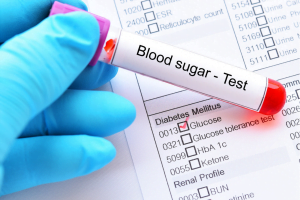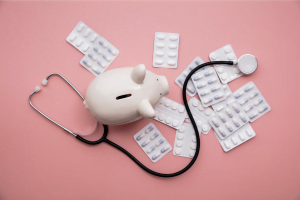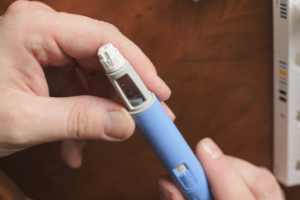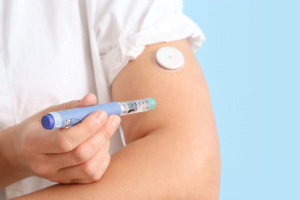What are DPP-4 Inhibitors?
Dipeptidyl Peptidase-4 Inhibitors (known as DPP-4 inhibitors or ‘gliptins’ for short) are a class of oral medications that help regulate blood sugar in people with type 2 diabetes. They are usually prescribed when other medications like metformin, sulphonylureas, or TZDs are unsuitable or have failed to adequately lower or control your blood sugar levels.
Incretin is a gastrointestinal hormone that causes the pancreas to release insulin and prevents your liver from making glucose after you eat. Incretin is removed from the body by the enzyme dipeptidyl peptidase-4 (DPP-4). People with type 2 diabetes do not make enough incretin. Therefore, by slowing or inhibiting DPP-4 use, incretin can remain in the body for longer, thereby allowing the release of more insulin to lower blood sugar.
Along with a healthy diet and exercise plan, DPP-4 drugs can be taken on their own or as part of a combination pill to regulate blood sugar. Unless they are taken with other medications, these inhibitors are unlikely to cause weight gain or low blood sugar (hypoglycemia). In fact, they may help with weight loss. However, these types of medications have been linked to an increased risk of pancreatitis.
DPP-4 Inhibitors Brand Names
There are four main DPP-4 inhibitors currently being marketed:
This class of drugs is also available in the following combination diabetes pills:
- Janumet (sitagliptin and metformin)
- Jentadueto (linagliptin and metformin)
- Kazano (alogliptin and metformin)
- Komboglyze (saxagliptin and metformin)
- Oseni (alogliptin and pioglitazone)
- Juvisync (sitagliptin and simvastatin)
Before taking gliptins, there are a few things you should know…
It has not been significantly studied to determine if gliptins pass through breast milk, or if this type of medication can harm an unborn baby. If you are pregnant or breastfeeding, it is important to tell your doctor before taking any of these drugs.
You should also communicate with your doctor about any other health products you may be taking, including other prescription medication, over-the-counter drugs, vitamins, or herbal supplements when taking these types of drugs. This is to help prevent any harmful or unwanted side effects and avoid any unsafe interactions.
Dipeptidyl Peptidase 4 Inhibitors Side Effects
As with any medication, these drugs may cause some negative effects. Some of these effects can be serious. Tell your doctor or health care provider if you suffer from any of the following symptoms:
- Inflammation of the pancreas (pancreatitis)
When taking gliptins, you could suffer from severe stomach pain. You may also experience a loss of appetite or a rapid heart rate. The discomfort may spread to your back and could cause nausea and vomiting. If the pain is sharp and does not go away, it could be a sign of an inflamed pancreas.
- Hives
A painful skin condition accompanied by a red or purple-colored rash.
- Severe allergic reactions
Some people may suffer an allergic reaction to this type of medication. If at any time you experience trouble breathing, chest pains, swelling of your face, lips, tongue or throat, stop taking your medication and get emergency medical attention.
The most common negative effects of taking gliptins include
- runny nose
- headache
- sore throat
- nausea
- diarrhea
- urinary tract infections (fever, blood in the urine, a painful or burning sensation when you urinate).
Type 2 diabetes symptoms can worsen over time, so it is recommended to get regular checkups with your doctor and perform regular blood tests in case your dose or medication needs to be changed. Your doctor may want you to have a kidney test while taking this medication. If you have kidney problems, you may need a reduced dosage.
Taking gliptins medications can help keep your blood sugar in a healthy range and reduce your risk of any long-term complications associated with type 2 diabetes.
—
Disclaimer: Please note that the contents of this community article are strictly for informational purposes and should not be considered as medical advice. This article, and other community articles, are not written or reviewed for medical validity by Canadian Insulin or its staff. All views and opinions expressed by the contributing authors are not endorsed by Canadian Insulin. Always consult a medical professional for medical advice, diagnosis, and treatment.





